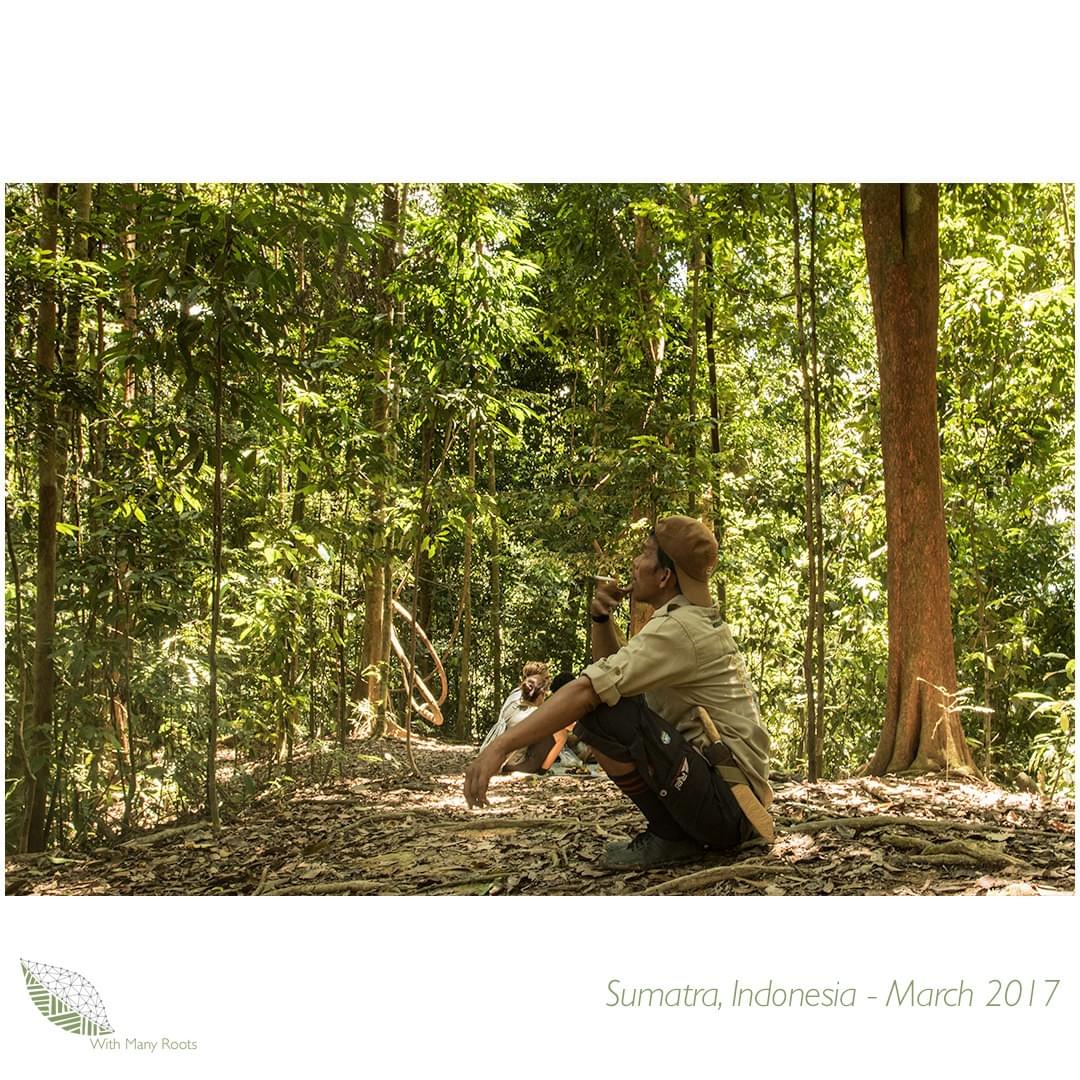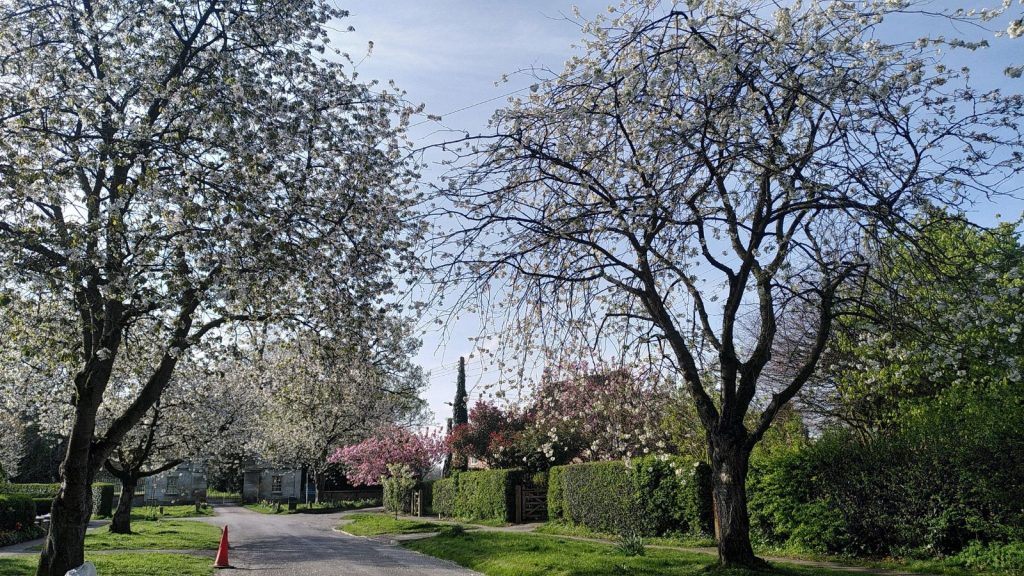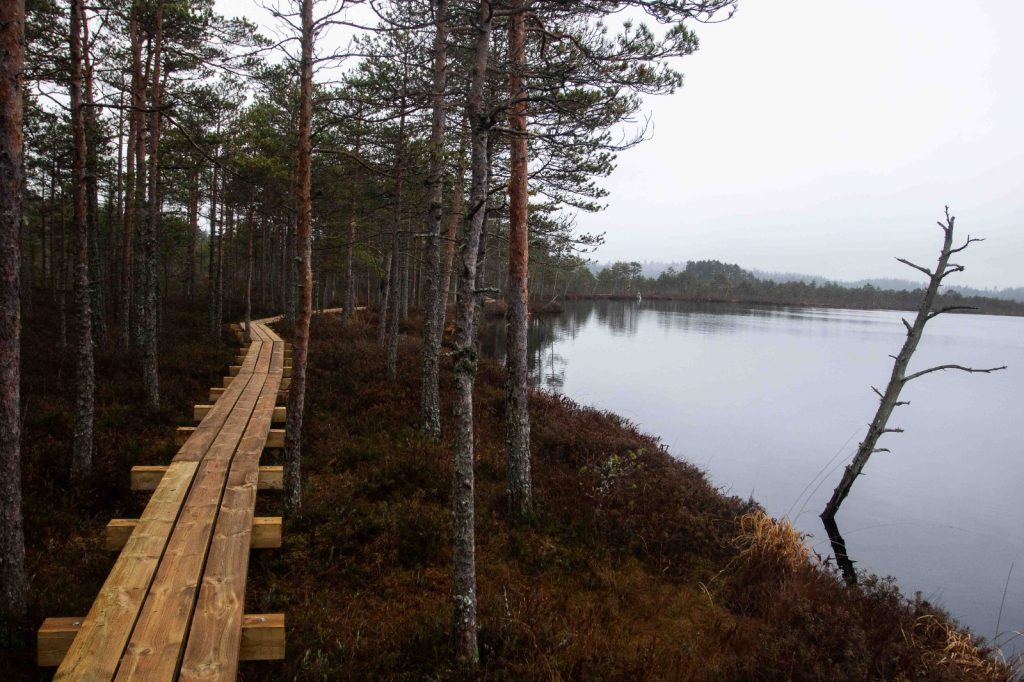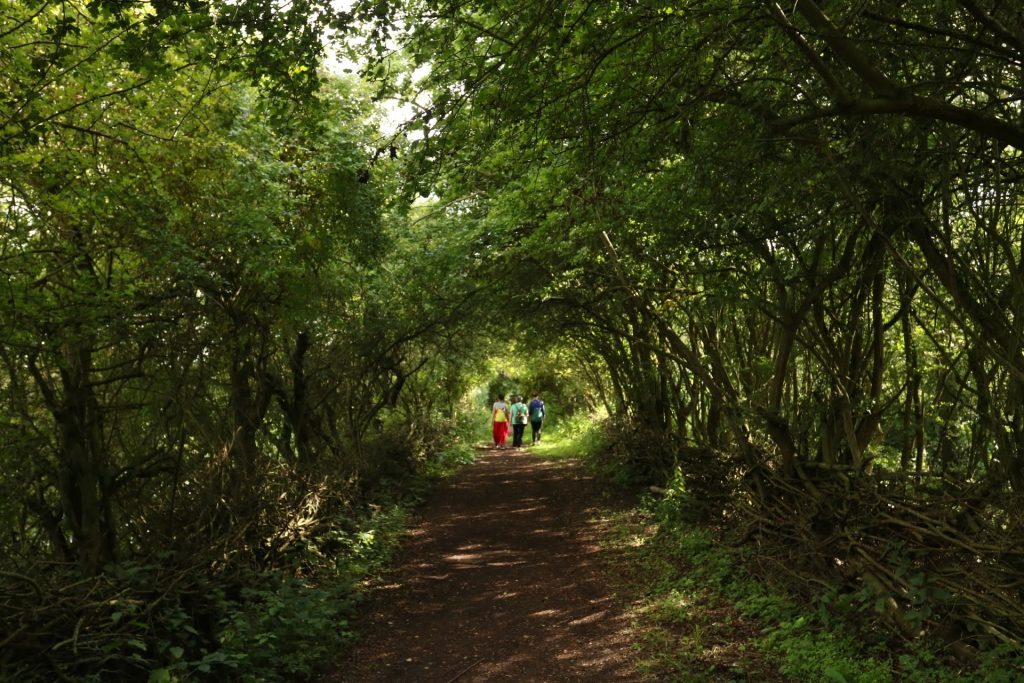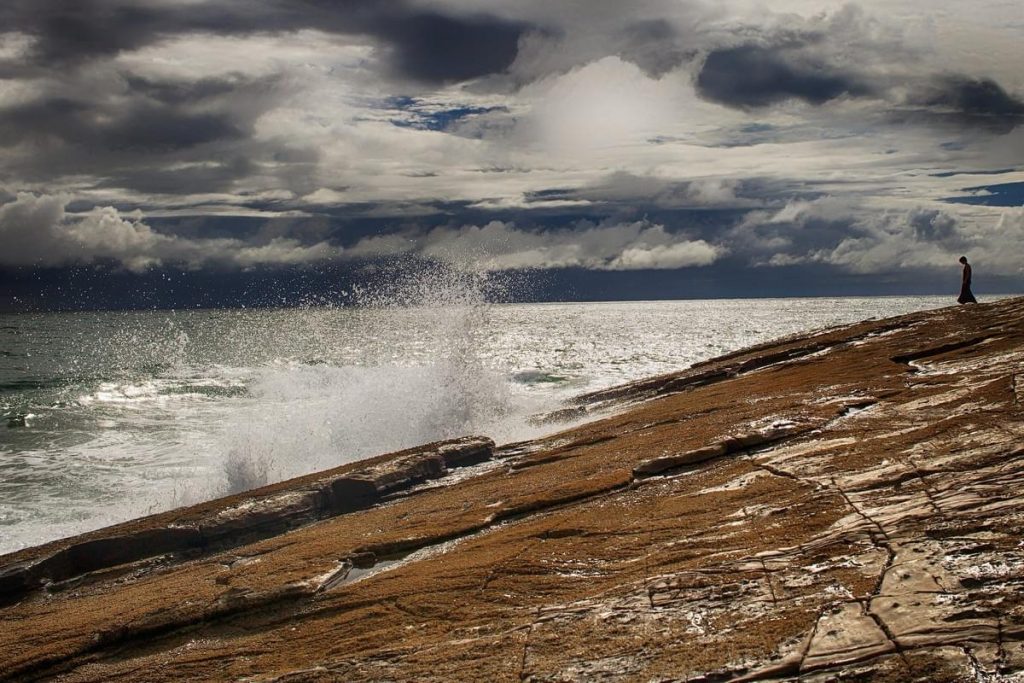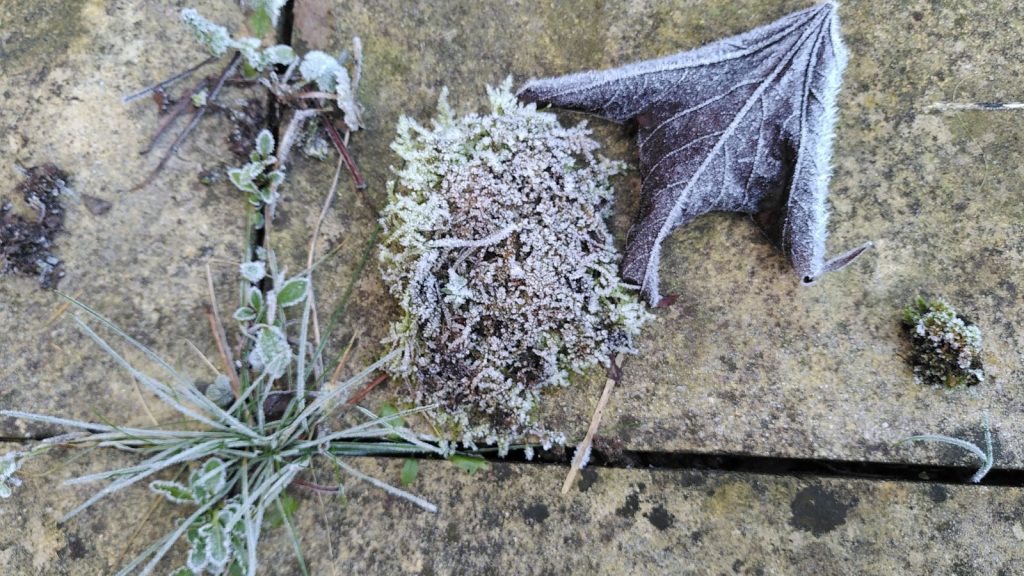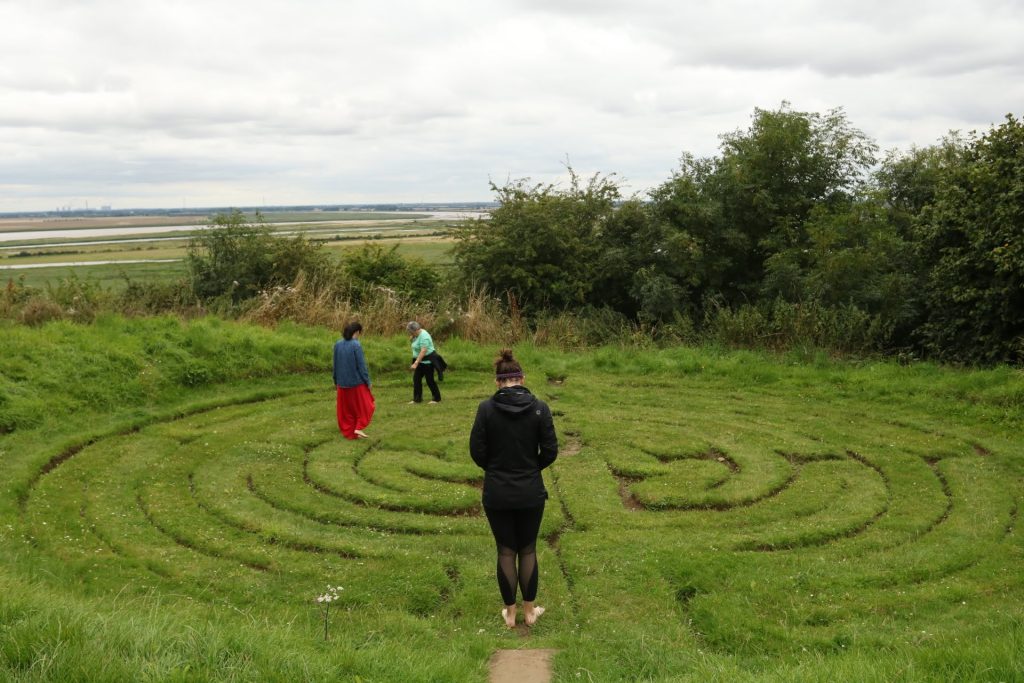Using Batik to share climate messages
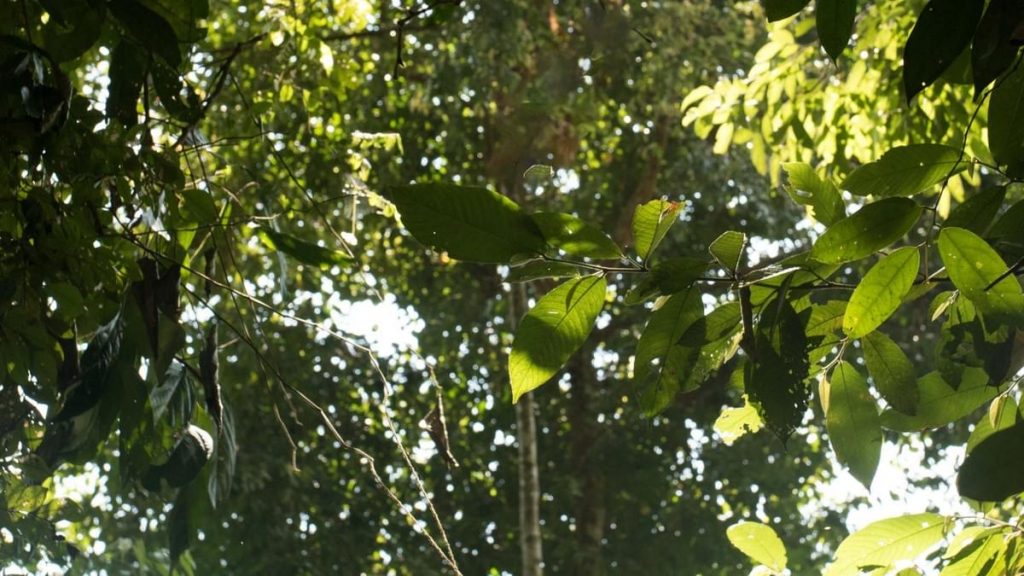
We had the privilege of meeting Aca during a short and restorative stay at his guest-house in Bukit Lawang, Back to Nature last year. One quiet evening after feasting on local cuisine at the restaurant, with the sound of the river and local insect life as our backdrop we found out about Aca’s history and principles. His passion was infectious, he had strong messages to tell and did not hold back. And he’s right. Global climate initiatives and conservation continues to be top-down and often reeks of colonialist undertones. It was not a conversation I was going to forget anytime soon, nearly a year later I am pleased I can share his story here.
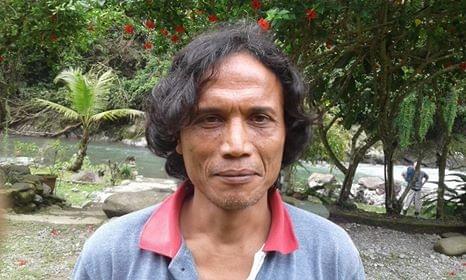
Inspiring Activist: Aca Alamsyah from Bukit Lawang National Park, Sumatera Utara, Indonesia
Tell us a bit about yourself
I was born on 1966 in Medan where I finished high school and visited Bukit Lawang several times, that’s how I developed my love for the jungle. My parents wanted me to study law after high school but I preferred volunteering in the rehabilitation center for orangutans and working as a guide for jungle trekking. I used to fight for the rights of the locals as the leader of the guide association.
What worries you?
Climate change is happening and we are directly affected in our region. For the last two years we’ve had difficulty telling the difference between dry and wet season, we notice more and heavier rain, thunderstorms, and higher water levels in the river throughout the year. I’m worried it’s going to get even worse.
I’m also concerned about the way people evaluate the jungle and rainforest. For many years only two opinions have existed and two big players have taken advantage – From the NGO perspective, the rainforest is valued simply as nature, to be protected as a habitat for endangered animals and to prevent further climate change. And from the business-side it has economic value for harvesting the wood and turning the land into plantations. But still, there is no sustainable “middle road” which could prevent deforestation and at the same time ensure a safe income for local people.
Although the jungle is rich, many locals are poor and don’t see what chances they have in growing their own businesses from the assets within. They rely on jobs as suppliers for big palm oil and rubber companies, with big risks as market prices vary. I also believe the current problem focusing on a donation-system which the NGOs have been following for many years is wrong. They ask for money in the western world and knowing this is “easy money” they cultivate the message of “endangered jungle and wildlife“ which in itself is an asset for them. Instead of looking for sustainable solutions such as buying more jungle to save it from deforestation or planting fruit trees for the animals. They run their “Robin Hood” business concept and are not willing to learn that in the long run it will not be possible to save the jungle without participation from local people. In 2015 the orangutan feeding platform in Bukit Lawang National Park was closed by an NGO, it was controlled and safe for both animals and humans at the time, and a big tourist attraction for Bukit Lawang. Nobody explained why, but we were left with the problem of hungry orangutans used to being fed for many years suddenly stealing fruit from the village which lead to conflicts with the local people.
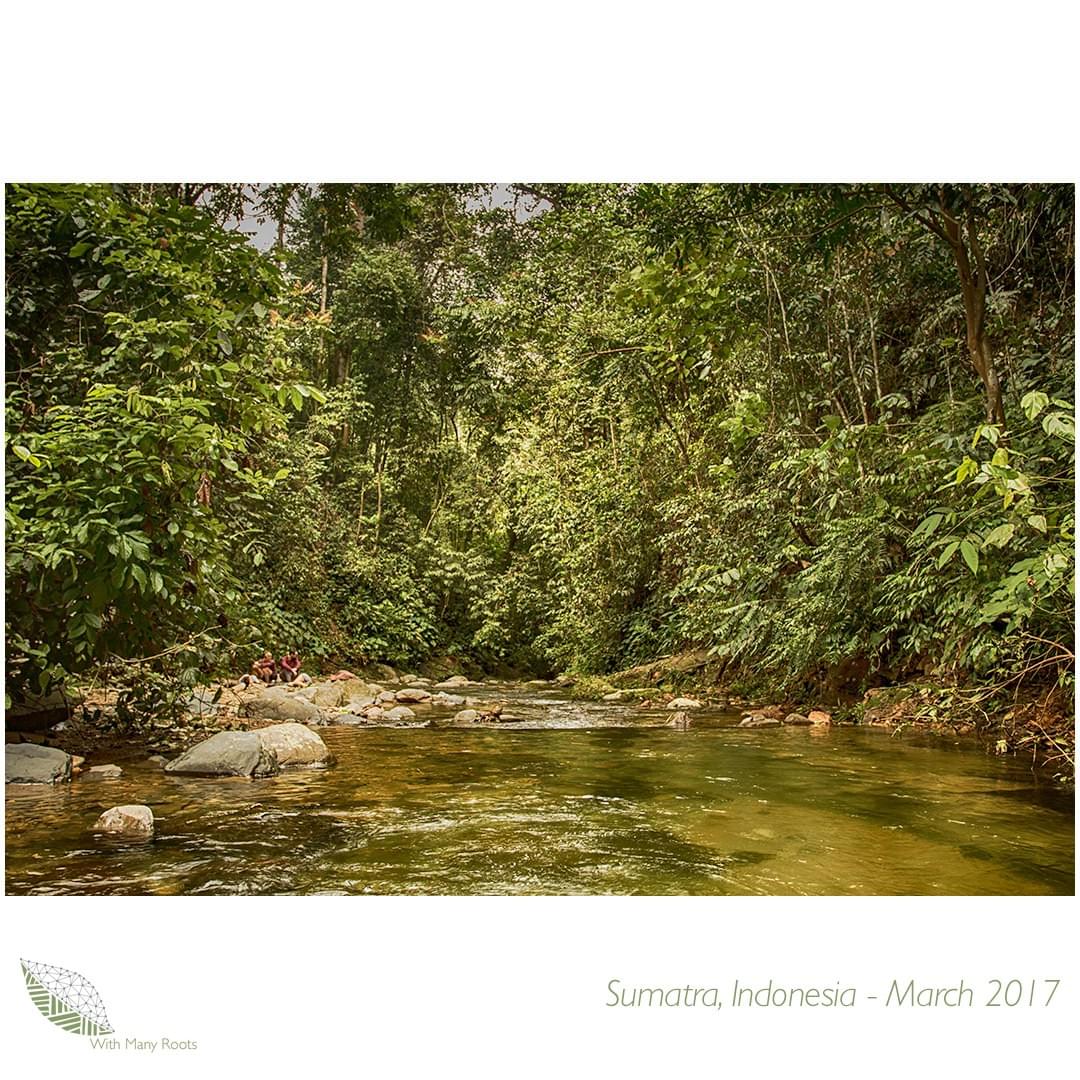
What positive contributions do you make?
There are many sustainable economic opportunities in the rainforest which go side by side with nature conservation: eco-tourism, guest-houses along the river, campsites and information trails in the forest, collecting and growing plants from the jungle, they all provide chances to establish business. I share my ideas with locals and people around the world to encourage them to invest in alternatives instead of cutting down the jungle. I talk to many visitors that come to my guesthouse, I take part in assemblies with locals and politicians. I plan to write a book to spread my ideas about the economic potentials of the jungle and of course, I want to set examples. I invested in 120 hectares of primary jungle and 5 hectares of old plantation, I built a small guesthouse and planted hundreds of fruit trees to feed the monkeys so they wouldn’t steal fruit from the local farmers. We also plan to build our own feeding platform and a jungle trail for trekking and education, there is already a garden where we grow medical plants. When it is all realised, these projects will be positive examples of building sustainable “green business” in the jungle. I am looking forward to locals copying this model and succeeding, because this means they will also protect the rainforest and shift away from destroying it.
Have you had to make any sacrifices?
My fight against the classic NGO-system that existed in Bukit Lawang caused a lot of problems and put my life and the life of my family at risk. They tried to to offer me money so I would be quiet, I was called a terrorist, they tried to put me in jail, threatened me so I needed bodyguards and my first guesthouse burnt down under suspicious circumstances which was the final reason I moved to the Netherlands. Years later, when I decided to return and fight, I had to leave my former family behind. I invested all the money I earned in Europe to buy primary jungle in Indonesia and since then have always reinvested the little income I get from my guesthouse, it’s just about enough to survive. I’ve gone through rough times and been tempted by people wanting to buy the land, but I’ve never sold a piece of primary jungle or let people cut it down.
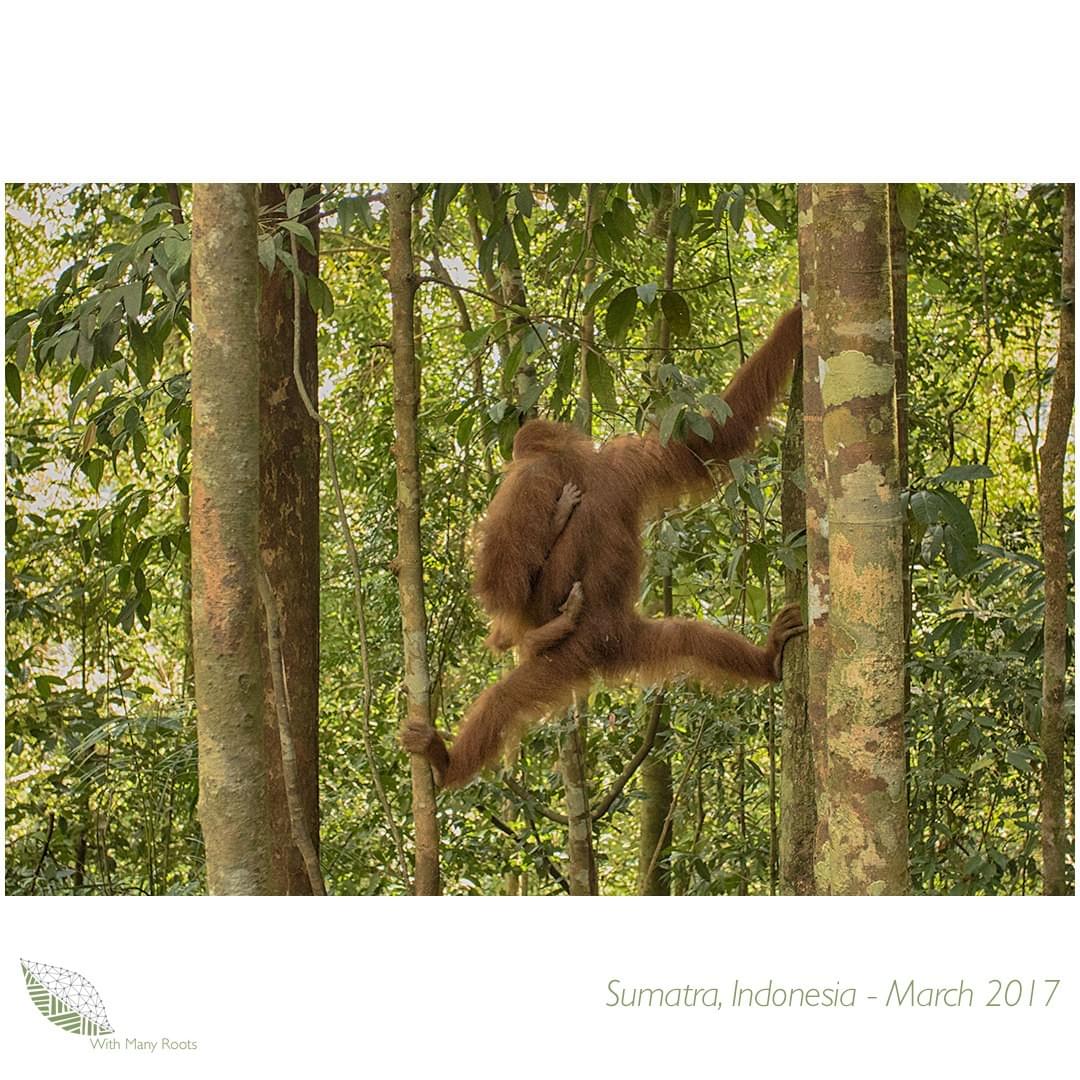
How do you stay motivated, what gives you hope?
There were, of course times of frustration when I almost wanted to surrender, but looking at the beautiful jungle and its wildlife around my guest-house reminds me each and every day to carry on. Meeting my girlfriend, who loves nature just like I do, gives me new inspiration and has renewed my motivation to carry on. I am very happy to have found a like-minded companion who supports me in so many ways.
I do see progress, several of my program ideas have been realised by locals already; new guesthouses have been built along the river and the owners really take care of the surroundings. I sponsored land to locals to encourage them to build more campsites for overnight jungle trekking, now they have learnt to take care and clean these places in the jungle, because they generate a fair income. Buffalo owners used to earn money by helping loggers pull big cut trees out of the jungle, now they offer buffalo trekking to tourists instead. They can increase their income in less time and don’t have to work so hard. If more successful examples are developed, more people will be encouraged to try and earn their living without destroying the jungle. This gives me the power to continue to develop more projects and spread my ideas further, I am convinced that this is a great chance to save the jungle after all.
What is your message to the world?
Climate change is happening, time is running out fast, we must act now!
Let’s realise that we need the jungle, but the jungle does not need us
Don’t use toilet paper, it’s probably another part of why the jungle gone and down the drain! [More about that in a follow-up post with Aca]
It’s better not to donate to the big NGO’s if you want to do good do not support a big administration, support small projects directly that are ran partly at minimum maintained by locals.
Find out more about the Back to Nature Guesthouse here. And if you’re interested in some of the tourist activities Aca has been developing in partnership with the local community please contact him:
Email: [email protected]
Phone/Whatsapp/sms: +6281375400921
Facebook: https://www.facebook.com/profile.php?id=100004340387867
